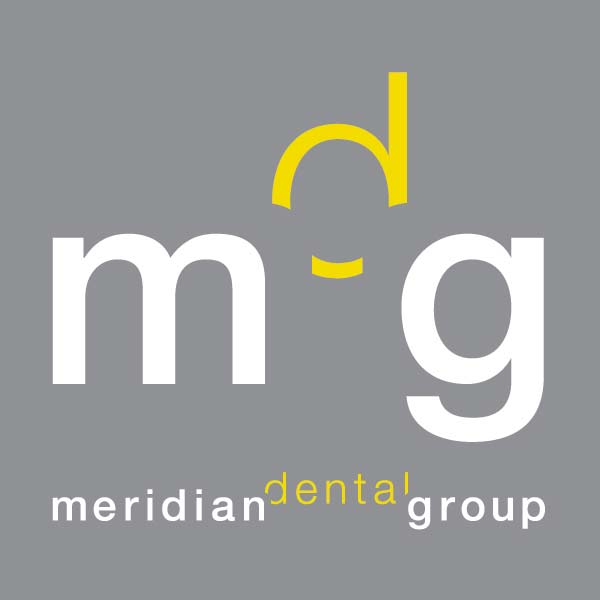Restorative Dentistry in NYC

Meridian Dental Group provides restorative dentistry in Midtown NYC. Call 212-813-0850 to learn more and schedule an appointment.
Restorative procedures help protect both oral health and overall health while improving the appearance of the patient’s smile. The right restorative procedures at the right time can reduce the need for additional dental work in the future.
At Meridian Dental Group, we aim to provide the most current and reliable services in the dental field. We have listed the most common restorative services below with brief descriptions.
The Biomimetic Approach
Biomimetic Dentistry is defined as the reconstruction of teeth to emulate their natural biomechanical and esthetic form and function. Simply put, biomimetic dentistry means to copy what is life-like. With biomimetic dentistry, only the damaged and decayed part of the tooth is removed and the final restoration is bonded to the remaining healthy natural tooth structure. Biomimetic restorations include stress-reduced direct composite restorations and porcelain/composite inlays and onlays that restore the biomechanics of broken and damaged teeth.
When restoring damaged, broken, and decayed teeth, the goal is to return the tooth to its original strength, function, and esthetic. Biomimetic dentistry accomplishes all of this in a conservative approach with strong and attractive results.
Composite Fillings
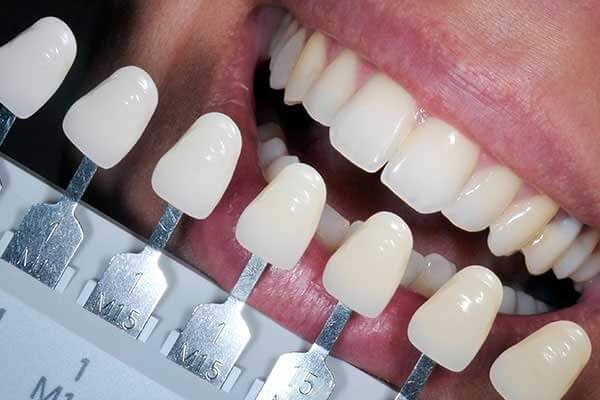
These are tooth colored fillings that are custom chosen to match and blend into your teeth so they are inconspicuous, unlike older amalgam (silver) fillings. Amalgam restorations containing mercury also break down over time leading to leakage of bacteria and decay under the restoration. With composite restorations, they are bonded to the tooth structure which lessens the chance for leakage.
Composite fillings use tooth-colored material to restore teeth with cavities and maintain a natural appearance. Once the decay is removed, the tooth is filled with a composite material which is then cured using a specialized light to harden the material. Composite fillings can be done in one visit.
Inlays and Onlays
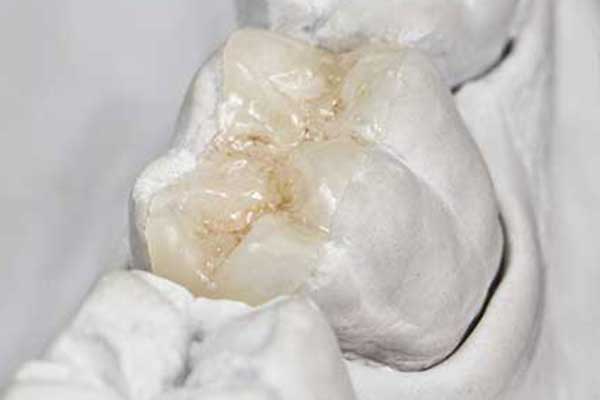
When teeth have large amounts of decay, or when they have been fractured to the extent that too much of the natural tooth structure has been loss, and inlay or onlay maybe the solution. This procedure allows the doctor to conserve more tooth structure than placing a crown. Inlays and onlays can be made from durable porcelain and other non-metal materials that are custom matched to your tooth color. This restoration is then securely bonded to your tooth adding structural integrity while preserving as much natural tooth structure possible. They are virtually undetectable after placement.
Crowns
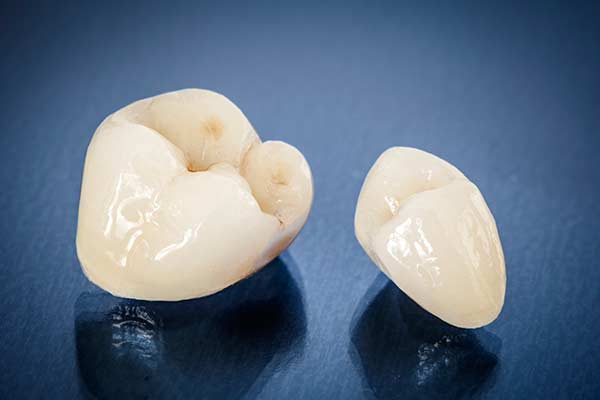
A crown is a dental restoration that completely covers the outside of a tooth that is cracked, broken, worn down, or severely decayed. Dental crowns are usually completed in two visits. During the first visit, the tooth is prepared (shaved down) and an impression is taken. A temporary crown is placed while the permanent crown is fabricated. During the second visit, the permanent crown is carefully fitted and then cemented into place.
There are a multitude of options for crowns available for our patients depending on the dental situation and/or need. All crowns are full coverage restorations that help to restore broken down teeth to their original shape, form and function. Non-metal crowns are aesthetically pleasing while still having the strength of traditional porcelain-metal crowns. The shade is custom chosen to blend with your teeth and with no metal they do not cast the dark black edges that some porcelain-metal crowns do.
Implant Restorations
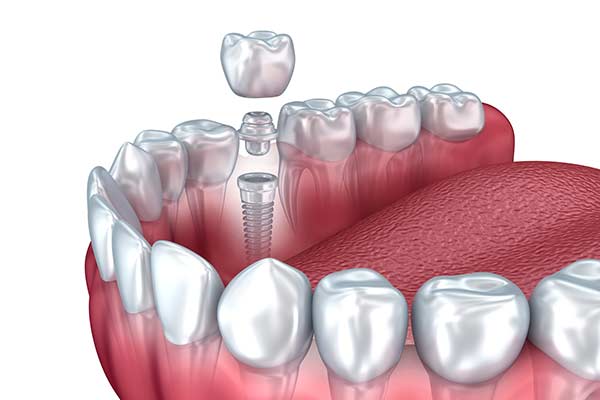
Dental implants are composed of three pieces: a small screw made of a biocompatible metal called titanium, an abutment which connects the screw and the final restoration, and the final restoration. The screw, which is placed in the jawbone, acts as a replacement for the tooth root, providing a strong foundation for fixed or removable replacement teeth. The screw begins to fuse with the bone over the course of a few months. After the fusing process, known as osseointegration, the abutment is inserted into the screw to allow for the permanent attachment of the restoration.
Dental Bridges
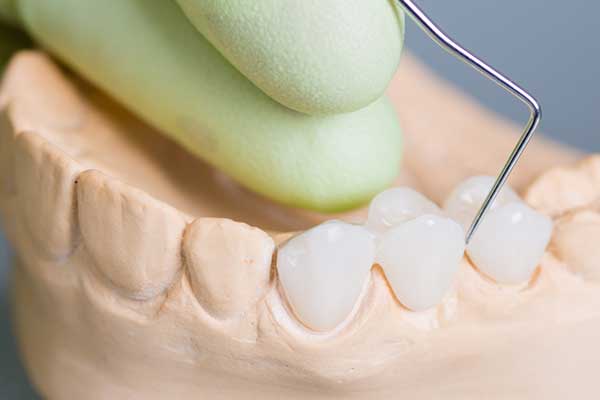
A bridge can replace missing teeth without the use of a denture or dental implant. A bridge is composed of two crowns and a replacement tooth or teeth. Crowns are typically placed on the teeth on either side of the space, with the fabricated tooth or teeth attached in between.
For multiple missing teeth, an implant may be used to anchor the bridge.
Dentures
A denture is a replacement for multiple missing teeth within the same (upper or lower) arch. A denture differs from a crown or bridge in that it does not rely on an existing tooth structure, and it completely replaces the missing teeth.
There are several different types of dentures:
- Full or Partial
- Removable or Fixed
- Traditional or Implant-Supported
Call 212-813-0850 to schedule an appointment at our dental office in Midtown Manhattan.
